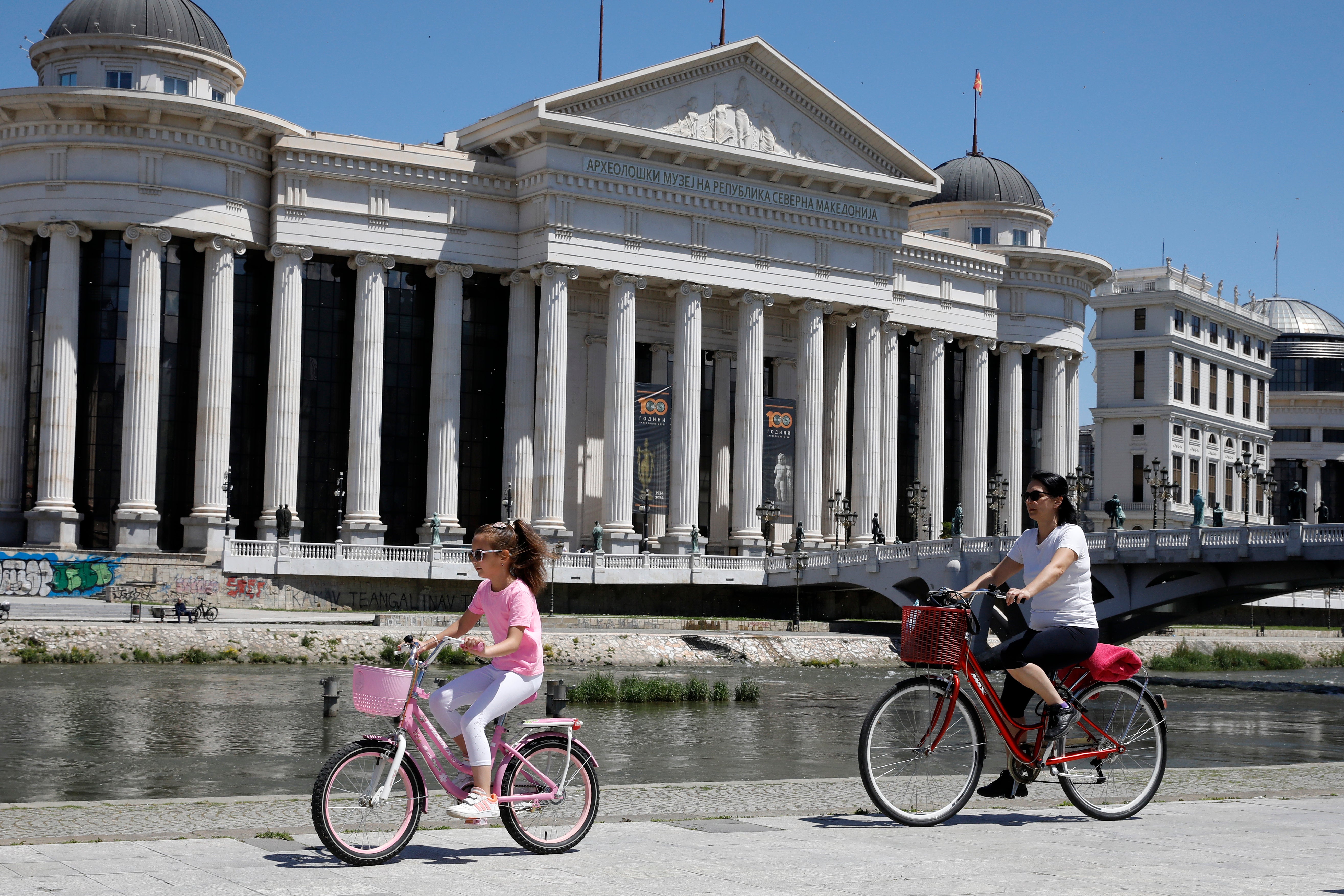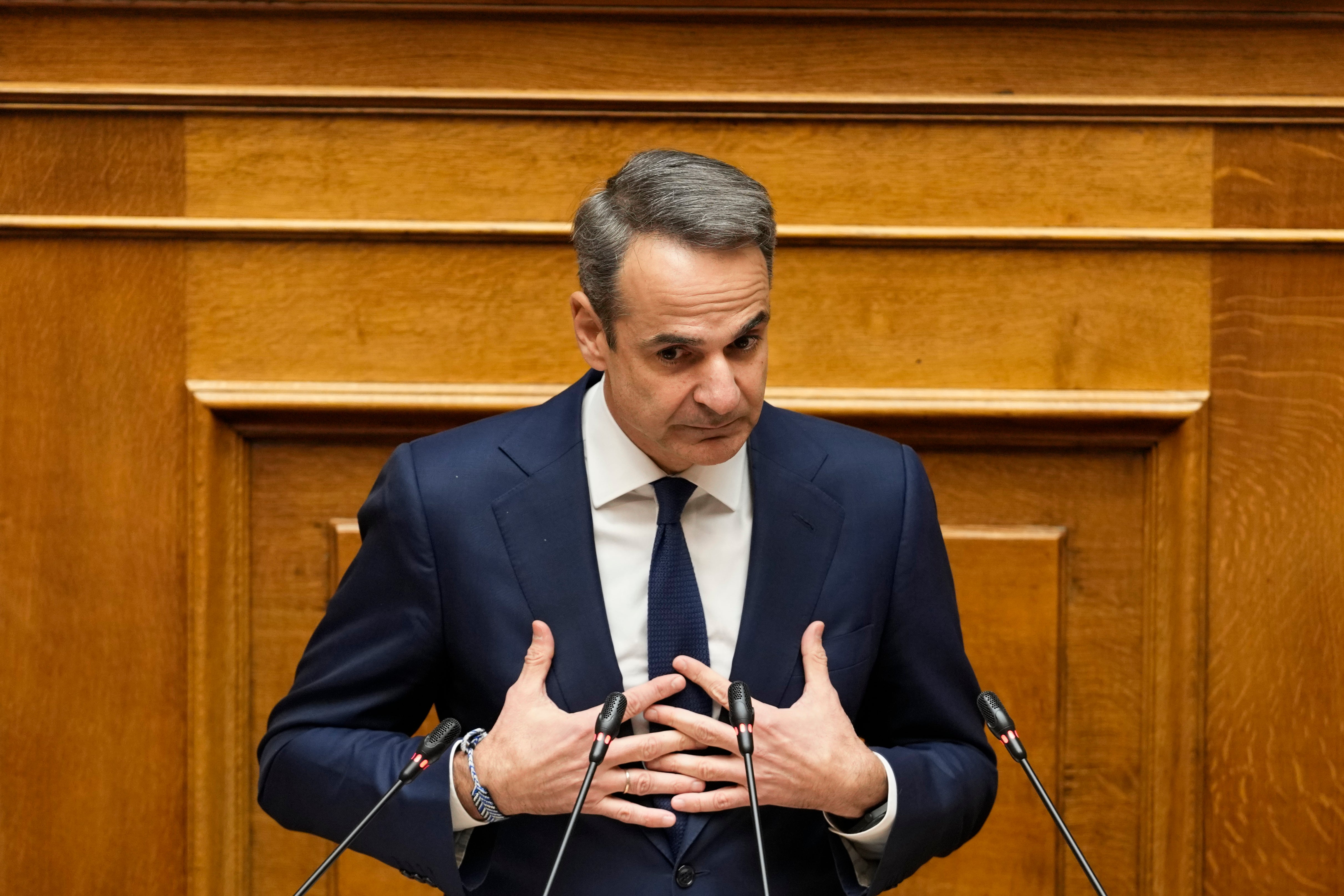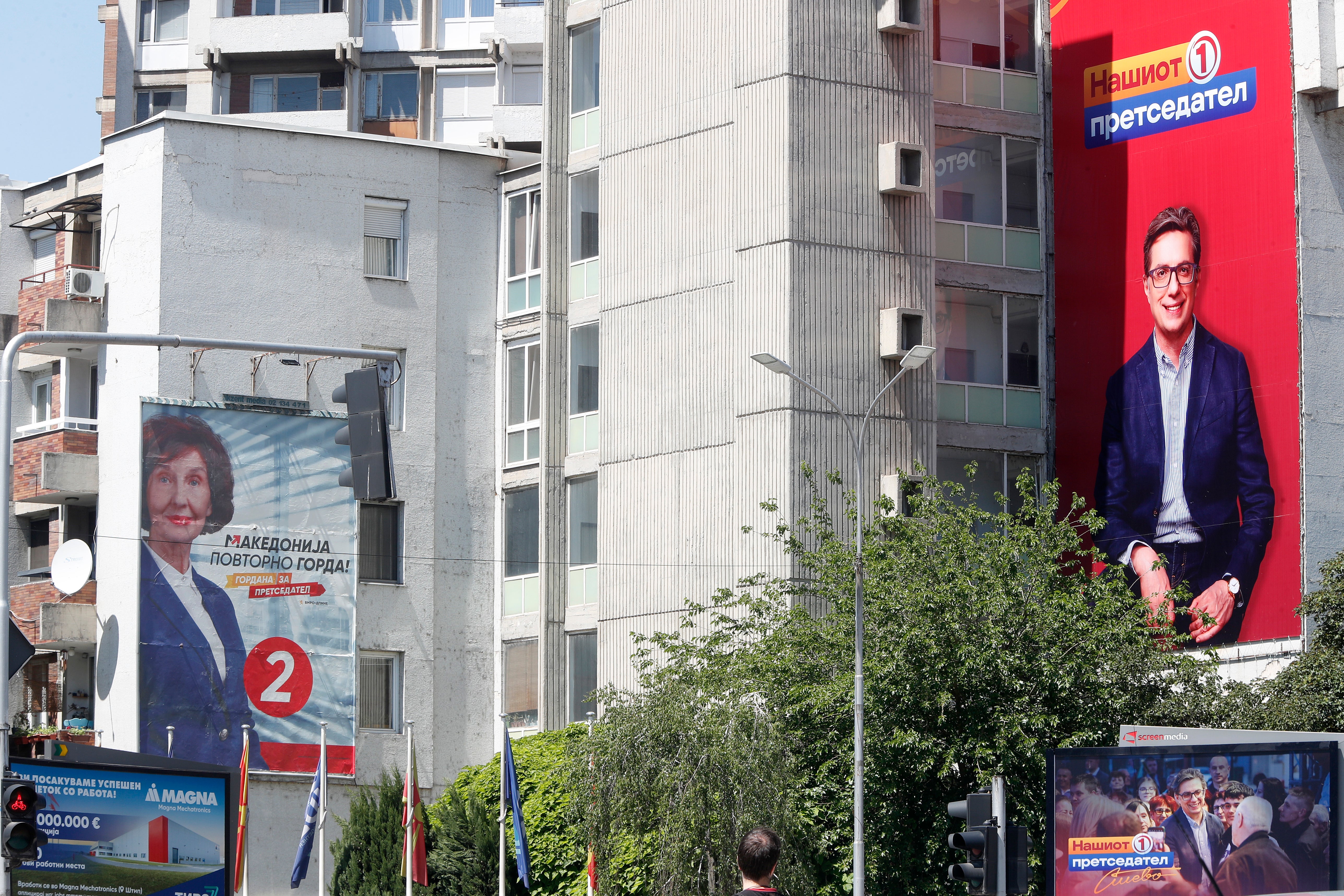Just one word could stop this country from joining the EU
The EU sounded a warning over the newly elected president

Your support helps us to tell the story
This election is still a dead heat, according to most polls. In a fight with such wafer-thin margins, we need reporters on the ground talking to the people Trump and Harris are courting. Your support allows us to keep sending journalists to the story.
The Independent is trusted by 27 million Americans from across the entire political spectrum every month. Unlike many other quality news outlets, we choose not to lock you out of our reporting and analysis with paywalls. But quality journalism must still be paid for.
Help us keep bring these critical stories to light. Your support makes all the difference.
Greece has threatened to hinder North Macedonia’s bid to join the EU over the use of the word ‘North’.
The warning comes after newly elected president Gordana Siljanovska-Davkova called her country just ‘Macedonia’ during a speech.
It has revived a long-running dispute over the name.
Siljanovska-Davkova - who got backing from a resurgent nationalist party in last week’s vote - referred to the formerly widely-used name during her inauguration on Sunday, violating a U.N.-brokered agreement between Athens and Skopje.
Greece has long said the use of the term by its neighbour implies territorial claims on a Greek province which is also called Macedonia.
“Any progress in our bilateral relations, as well as any step by Skopje towards Europe hinge on their honest respect of the agreement,” Greek Prime Minister Kyriakos Mitsotakis said on Monday.

The president’s use of the name was “unlawful and unacceptable”, he added.
The EU also sounded a warning. “For North Macedonia to continue its successful path on EU accession it is paramount that the country continues on the path of reforms and full respect for its binding agreements,” European Commission President Ursula von der Leyen wrote on X on Sunday.
North Macedonia’s foreign affairs ministry later said the country was committed to “the unequivocal observance of the Constitutional provisions as well as all internationally undertaken obligations” including the Prespa accord.
Both countries agreed that Greece’s neighbour would be called “North Macedonia” after long and contentious negotiations in 2018.
The so-called Prespa accord that came into force a year later appeared to end a 27-year-old dispute and cleared the way for Skopje to join the NATO military alliance.
At the time, Greece said it would support its neighbour’s bid to join the European Union.
Siljanovska-Davkova was elected as president last week with the backing from North Macedonia’s right-wing and nationalist VMRO-DPMNE party.

The VMRO-DPMNE - which made major gains in the vote, partly riding on a wave of frustration over sluggish progress in the country’s bid to join the EU - has refused to acknowledge the Prespa deal which it sees a challenge to national sovereignty.
In Greece, Mitsotakis’s conservative party also opposed the Prespa name deal when it was made.
The deal, hammered out between the then Prime Ministers of both countries, Alexis Tsipras and Zoran Zaev, was ratified by Greece’s parliament amid demonstrations by protesters who said the new name still implied a territorial claim over the northern Greek region of Macedonia.
Subscribe to Independent Premium to bookmark this article
Want to bookmark your favourite articles and stories to read or reference later? Start your Independent Premium subscription today.
Join our commenting forum
Join thought-provoking conversations, follow other Independent readers and see their replies
Comments